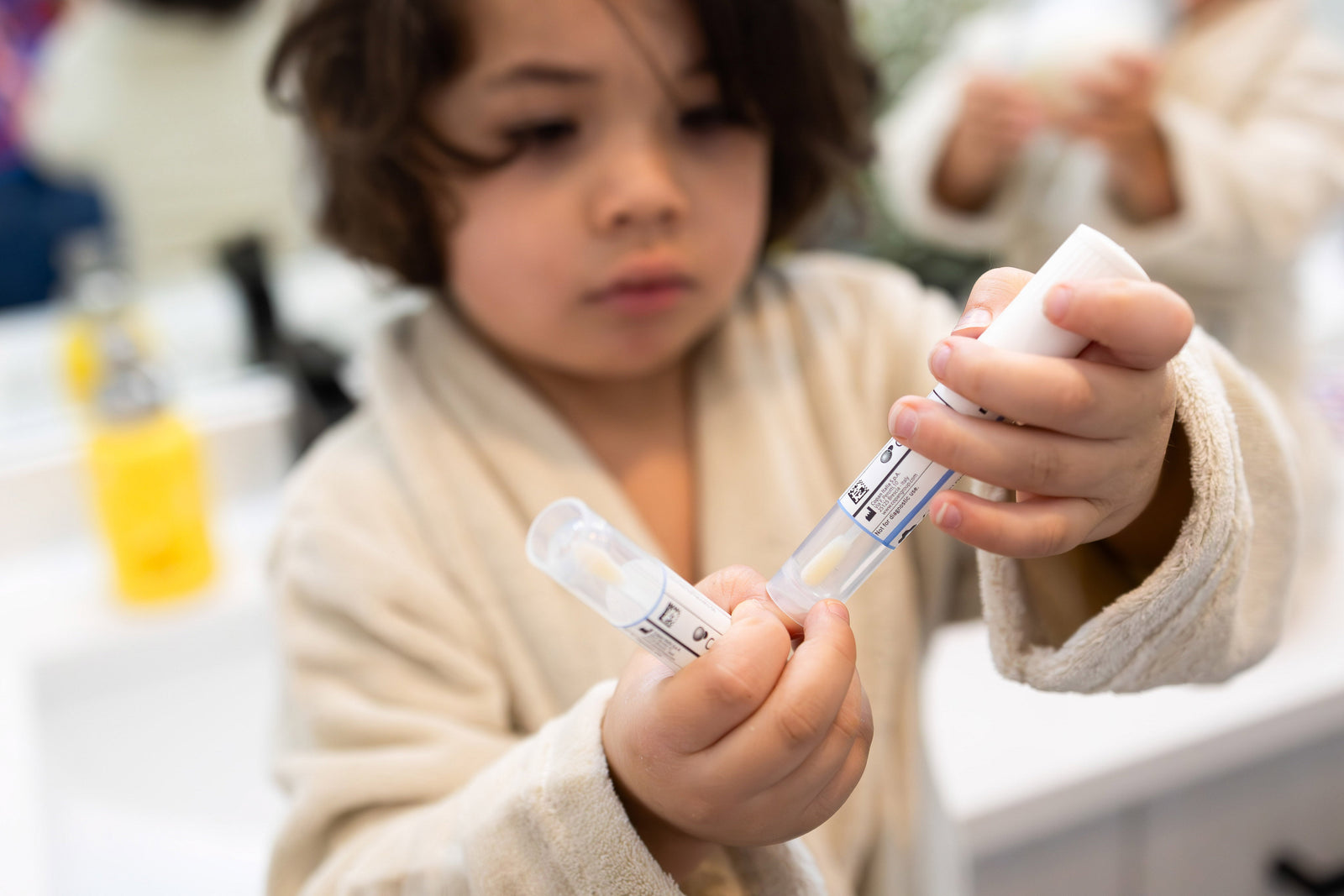Your Cart is Empty
Continue shoppingGut Health Tips for Babies
Medically Reviewed by May Zhu, RDN | Published May 23, 2024
share this article

Gut health plays a vital role in your baby's overall development, influencing their immune system, metabolism, and general well-being. Supporting the establishment of a healthy gut microbiome from the very beginning can set the stage for lifelong health.
In this blog post, we’re sharing evidence-based gut health tips to promote your baby’s microbiome.
Daily reads to help your little ones lead happier and healthier lives.
Buy Now
Join the
Happy Gut Club
Why is Gut Health in Babies Important?
The gut microbiota significantly impacts a baby’s development, helping shape their immune system, support digestion, and protect against illness. Babies are born with a largely sterile gut, and their microbiome begins developing rapidly after birth.
Begin Health Expert Tip
The choices parents make in the early weeks and months can help foster a healthy microbiome, supporting growth and preventing common gastrointestinal challenges.
Learn more here about how C-Section births impact baby gut health.
5 Evidence-Based Gut Health Tips for Babies
1. Breastfeeding
Breast milk is the gold standard for nourishing babies and supporting their gut health. It contains beneficial bacteria, human milk oligosaccharides (HMOs), and immune-boosting components that promote the growth of a healthy gut microbiota.
Research shows that exclusive breastfeeding can help reduce the risk of infections and promote the development of a robust microbiome.
2. Probiotics and Prebiotics
Introducing probiotics or prebiotics can help establish and maintain a healthy gut microbiome in babies. Probiotics provide beneficial bacteria, while prebiotics (like HMOs) nourish those bacteria. Consult with a pediatrician to choose safe and effective options tailored to your baby’s needs.
Here are the top ingredients to avoid in your baby prebiotic and probiotics.
3. Skin-to-Skin Contact
Skin-to-skin contact, often referred to as kangaroo care, supports your baby’s overall development and gut health. Studies have shown that this practice helps beneficial bacteria colonize your baby’s gut while also improving feeding success and boosting immunity.
4. Early Feeding Practices
Establishing feeding routines early helps stimulate the digestive system and supports gut microbiota development. Whether you’re breastfeeding, formula feeding, or using a combination, feeding early and regularly promotes gut health and overall well-being.
5. Avoiding Antibiotic Overuse
Antibiotics can disrupt the balance of gut bacteria in babies. While they are sometimes necessary, overuse or unnecessary use should be avoided. When antibiotics are prescribed, consider discussing probiotic supplementation with your healthcare provider to support gut recovery.
Summary
Supporting your baby’s gut health is one of the most impactful ways to foster their overall growth and development. Strategies like breastfeeding, incorporating probiotics or prebiotics, practicing skin-to-skin contact, establishing early feeding routines, and being mindful of antibiotic use can help promote a strong, healthy microbiome for your little one.

Author
May Zhu, RDN
Trending

Inc. Names Begin Health to Its 2025 List of the Fastest-Growing Private Companies in the Midwest
read now
Oxalates and Kids' Digestion: How High-Oxalate Foods Contribute to Constipation and Gut Discomfort
read now
5 Signs Your Toddler Needs a Poop Test
read now






